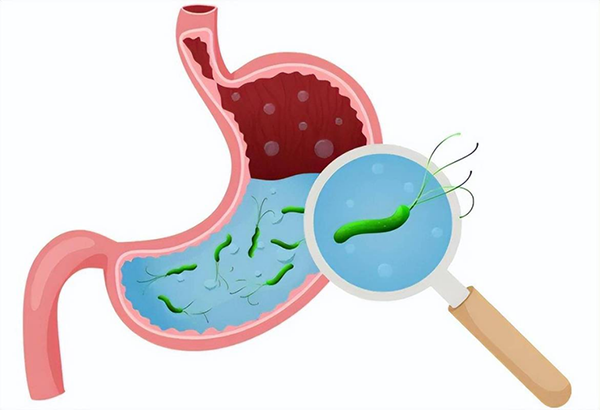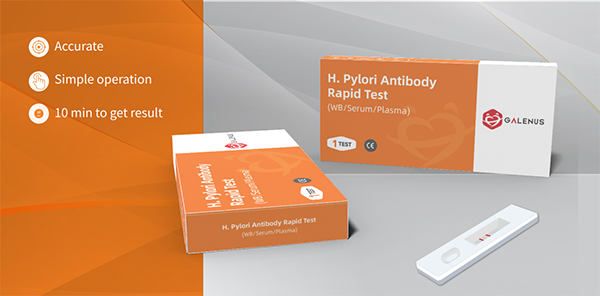Follow our latest developments
Helicobacter pylori (Hp) infects about 50% of the world's population, with higher infection rates in developing countries. The bacterium is classified as a Class I carcinogen by the World Health Organization, and is associated with non-cardia gastric cancer at a rate of 78.5%. The risk of gastric cancer in infected people is 3-6 times that of uninfected people.

Susceptible population and health hazards
Infection
About half of the world's population carries Hp, and the infection rate in some areas exceeds 60%.
Susceptible population
Groups with a high risk of family cluster infections; residents in economically underdeveloped areas.
Health hazards
Short-term: Causes chronic gastritis and peptic ulcer;
Long term: Causes gastric mucosal atrophy and intestinal metaplasia, significantly increasing the risk of gastric cancer.

Transmission route
Mouth-to-mouth transmission: spread through shared tableware, saliva contact, etc.;
Fecal-oral transmission: contamination of food or water sources that are not thoroughly cleaned.
Comparison of detection technologies and core advantages of colloidal gold method
Detection method |
Detection speed |
Operation Difficulty |
Cost |
Applicable scenarios |
Urea breath test (UBT) |
20-30 minutes |
Requires professional equipment and operation |
Medium |
Laboratories, Hospitals |
ELISA (antibody test) |
2-4 hours |
Laboratory environment required |
High |
Large-scale screening |
Rapid urease test (RUT) |
30 minutes |
Gastroscopy is required |
Medium |
Invasive diagnosis |
Colloidal gold method (antigen/antibody) |
10-15 minutes |
No equipment required, non-professional operation possible |
Very low |
Primary care, family self-examination |
Core advantages of colloidal gold method:
Sensitivity and specificity: Sensitivity>95%, using double antigen sandwich design to reduce cross-reaction;
Fast and convenient: Tests can be completed within 15 minutes and support serum, plasma or fecal samples;
Low cost: The cost of a single test is low, suitable for resource-poor areas;
No laboratory required: Store at room temperature and read results visually via color bands.

Galenus Medical has developed a Helicobacter pylori antibody rapid detection kit and a Helicobacter pylori antigen rapid detection kit for Helicobacter pylori detection. Both kits can be used for: early screening, by detecting stool antigens or serum antibodies to achieve early diagnosis of infection; primary medical care, replacing complex detection technologies under non-laboratory conditions to reduce the missed detection rate; home self-testing, providing high-risk groups with convenient self-testing solutions and shortening the diagnosis cycle.